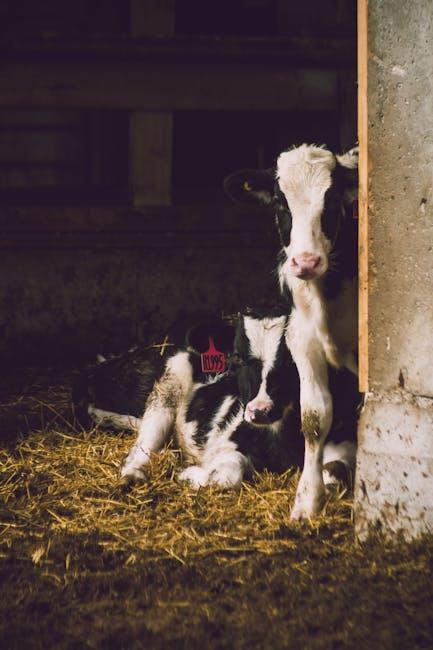In a world where climate change stands as one of the most pressing challenges of our time, the choices we make at the dinner table are gaining unprecedented attention. As the global community seeks innovative solutions to reduce carbon footprints, the question arises: could adopting a vegetarian lifestyle be a viable answer? This article delves into the intricate relationship between dietary habits and environmental health, exploring whether a shift towards plant-based eating might be a key ingredient in the recipe for a more sustainable future. Join us as we navigate the verdant landscape of vegetarianism and its potential impact on the planet, weighing the benefits and limitations of this lifestyle choice in the broader context of climate change mitigation. Vegetarianism on Carbon Footprint Reduction”>
Vegetarianism on Carbon Footprint Reduction”>
Impact of Vegetarianism on Carbon Footprint Reduction
Adopting a vegetarian diet can significantly contribute to the reduction of one’s carbon footprint. The livestock sector is a major contributor to greenhouse gas emissions, accounting for a substantial percentage of methane and nitrous oxide emissions. By choosing plant-based foods over meat, individuals can help decrease the demand for livestock production, which in turn reduces the emissions associated with it. A vegetarian lifestyle encourages the cultivation of crops for direct human consumption, which is generally more energy-efficient and requires fewer resources compared to raising animals for food.
- Reduced Land Use: Producing plant-based foods typically requires less land compared to meat production. This can lead to less deforestation and habitat destruction.
- Lower Water Consumption: Agriculture for plant-based diets often uses less water than that required for livestock, helping to conserve this precious resource.
- Decrease in Pollution: Shifting towards vegetarianism can lead to a reduction in pollution from agricultural runoff, as plant farming generally involves fewer harmful chemicals.
Exploring the Environmental Benefits of Plant-Based Diets
The shift towards a vegetarian lifestyle offers a myriad of environmental benefits that are becoming increasingly hard to ignore. As the global community grapples with the escalating effects of climate change, dietary choices have emerged as a pivotal factor in the conversation. A plant-based diet is not just a personal health choice; it’s a commitment to reducing one’s carbon footprint. Livestock farming is a significant contributor to greenhouse gas emissions, deforestation, and water pollution. By opting for plant-based foods, individuals can actively participate in mitigating these impacts.
- Reduced Carbon Emissions: Plant-based diets generate fewer greenhouse gases compared to meat-heavy diets.
- Conservation of Water Resources: Producing plant-based foods typically requires less water, contributing to water conservation efforts.
- Preservation of Biodiversity: Reducing the demand for animal agriculture helps protect natural habitats from being converted into farmland.
Embracing vegetarianism can be a powerful step towards environmental sustainability. It aligns personal health goals with the planet’s well-being, creating a harmonious balance between human and environmental health. As more people recognize the profound connection between diet and climate, the collective impact of these choices holds the potential to drive substantial change.

Assessing the Role of Vegetarianism in Sustainable Agriculture
In the quest for a more sustainable future, vegetarianism emerges as a compelling strategy with the potential to reshape agricultural practices. By reducing reliance on meat production, which is resource-intensive and a significant contributor to greenhouse gas emissions, vegetarianism can drive a shift towards more eco-friendly farming techniques. Sustainable agriculture benefits from this shift through the promotion of crop diversity, reduced land degradation, and improved water conservation. As more individuals embrace plant-based diets, the demand for diverse crops can incentivize farmers to adopt permaculture and other sustainable practices that nurture soil health and biodiversity.
- Reduction in carbon footprint associated with livestock farming.
- Encouragement of crop rotation and diversification.
- Improved soil health through reduced overgrazing.
- Conservation of water resources with less demand for animal feed production.
However, the transition to a predominantly plant-based agricultural system is not without its challenges. Ensuring that vegetarian options are both nutrient-rich and accessible requires thoughtful planning and innovation. The role of technology in improving yield and nutritional quality of plant-based foods becomes crucial. Furthermore, addressing socio-economic factors that influence dietary choices can help make vegetarianism a viable option for broader populations, ultimately contributing to a more sustainable agricultural landscape.

Practical Steps to Transition Towards a Climate-Friendly Diet
Embracing a climate-friendly diet doesn’t require an overnight overhaul of your eating habits. Instead, consider these practical steps to gradually reduce your carbon footprint through mindful food choices. Start by incorporating more plant-based meals into your weekly menu. Whether it’s a vibrant stir-fry or a hearty lentil soup, plant-based dishes are both delicious and sustainable.
- Meatless Mondays: Dedicate one day a week to eating only plant-based foods, which can significantly reduce your environmental impact.
- Local Produce: Opt for locally sourced fruits and vegetables to cut down on emissions from transportation.
- Seasonal Eating: Choose foods that are in season, as they often require fewer resources to produce.
- Mindful Portions: Be conscious of portion sizes to minimize food waste, a major contributor to greenhouse gas emissions.
Additionally, when shopping, prioritize purchasing sustainable products. Look for labels that indicate fair trade, organic, or environmentally friendly practices. By making these small yet impactful changes, you contribute to a larger movement towards a healthier planet.
To Conclude
As we conclude our exploration into the intersection of vegetarianism and climate change, it becomes clear that the choices we make at the dining table resonate far beyond the confines of our kitchens. The decision to embrace a vegetarian lifestyle is not merely a personal preference but a potential ripple in the vast ocean of environmental impact. While science presents compelling evidence linking reduced meat consumption to decreased greenhouse gas emissions, the conversation is nuanced, reflecting a tapestry of cultural, economic, and ecological threads.
In this intricate dance between sustenance and sustainability, the power lies in informed choices. Whether it’s adopting a full vegetarian diet or simply incorporating more plant-based meals, every step can contribute to a more balanced relationship with our planet. Ultimately, the journey towards mitigating climate change is collective, with each dietary decision playing its part in the grander scheme of environmental stewardship. As we set down our forks, let us remain mindful of the legacy we leave on our plates and, in turn, on our planet.




